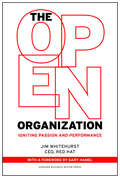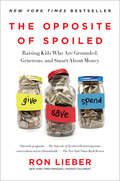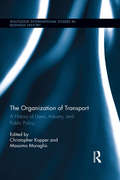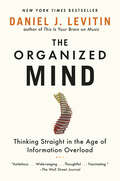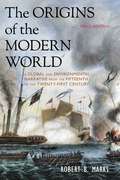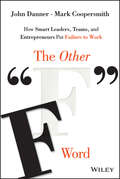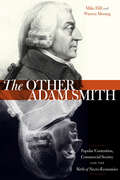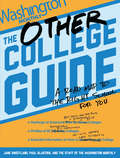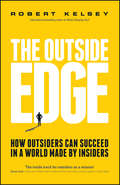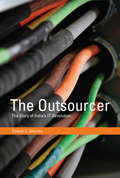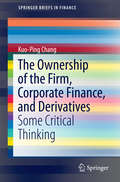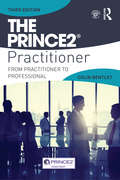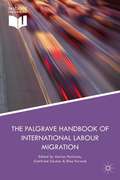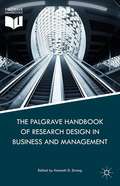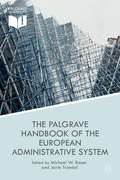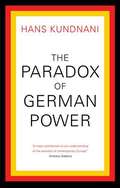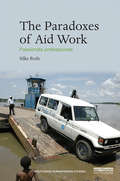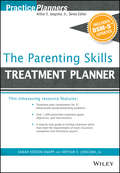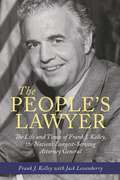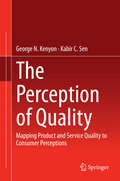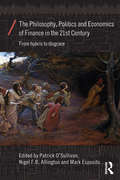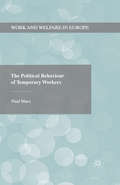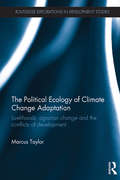- Table View
- List View
The Open Organization
by Gary Hamel Jim WhitehurstTODAY'S LEADERS KNOW THAT SPEED and agility are the keys to any company's success, and yet many are frustrated that their organizations can't move fast enough to stay competitive. The typical chain of command is too slow; internal resources are too limited; people are already executing beyond normal expectations. As the pace accelerates, how do you inspire people's energy and creativity? How do you collaborate with customers, vendors, and partners to keep your organization on the cutting edge? What kind of organization matches the speed and complexity that businesses must master-and how do you build that organization?Jim Whitehurst, CEO of Red Hat, one of the world's most revolutionary companies, shows how open principles of management-based on transparency, participation, and community-reinvent the organization for the fast-paced connected era. Whitehurst gives readers an insider's look into how an open and innovative organizational model works. He shows how to leverage it to build community, respond quickly to opportunities, harness resources and talent both inside and outside the organization, and inspire, motivate, and empower people at all levels to act with accountability.The Open Organization is a must-read for leaders struggling to adapt their management practices to the values of the digital and social age. Brimming with Whitehurst's personal stories and candid advice for leading an open organization, as well as with instructive examples from employees and managers at Red Hat and companies such as Google, The Body Shop, and Whole Foods, this book provides the blueprint for reinventing your organization.tools needed to reach a new level of work. And with that new level of work comes unparalleled success.The Open Organization is your new resource for doing business differently. Get ready to make traditional management thinking obsolete.
The Opposite of Spoiled
by Ron LieberWe may not realize it, but children are hyperaware of money. They have scores of questions about its nuances that parents often don't answer, or know how to answer well. But for Ron Lieber, a personal finance columnist and father, good parenting means talking about money with our kids much more often. When parents avoid these conversations, they lose a tremendous opportunity--not just to model important financial behaviors, but also to imprint lessons about what their family cares about most.Written in a warm, accessible voice, grounded in real-world stories from families with a range of incomes, The Opposite of Spoiled is a practical guidebook for parents that is rooted in timeless values. Lieber covers all the basics: the best ways to handle the tooth fairy, allowance, chores, charity, savings, birthdays, holidays, cell phones, splurging, clothing, cars, part-time jobs, and college tuition. But he also identifies a set of traits and virtues--like modesty, patience, generosity, and perspective--that parents hope their young adults will carry with them out into the world.In The Opposite of Spoiled, Ron Lieber delivers a taboo-shattering manifesto that will help every parent embrace the connection between money and values to help them raise young adults who are grounded, unmaterialistic, and financially wise beyond their years.
The Organization of Transport: A History of Users, Industry, and Public Policy (Routledge International Studies in Business History)
by Massimo Moraglio Christopher KopperOver the past ten years, the study of mobility has demonstrated groundbreaking approaches and new research patterns. These investigations criticize the concept of mobility itself, suggesting the need to merge transport and communication research, and to approach the topic with novel instruments and new methodologies. Following the debates on the role of users in shaping transport technology, new mobility research includes debates from sociology, planning, economy, geography, history, and anthropology. This edited volume examines how users, policy-makers, and industrial managers have organized and continue to organize mobility, with a particularly attention to Europe, North America, and Asia. Taking a long-term and comparative perspective, the volume brings together thirteen chapters from the fields of urban studies, history, cultural studies, and geography. Covering a variety of countries and regions, these chapters investigate how various actors have shaped transport systems, creating models of mobility that differ along a number of dimensions, including public vs. private ownership and operation as well as individual vs. collective forms of transportation. The contributions also examine the extent to which initial models have created path dependencies in terms of technology, physical infrastructure, urban development, and cultural and behavioral preferences that limit subsequent choices.
The Organized Mind: Thinking Straight in the Age of Information Overload
by Daniel J. LevitinNew York Times bestselling author and neuroscientist Daniel J. Levitin shifts his keen insights from your brain on music to your brain in a sea of details.The information age is drowning us with an unprecedented deluge of data. At the same time, we’re expected to make more—and faster—decisions about our lives than ever before. No wonder, then, that the average American reports frequently losing car keys or reading glasses, missing appointments, and feeling worn out by the effort required just to keep up.But somehow some people become quite accomplished at managing information flow. In The Organized Mind, Daniel J. Levitin, PhD, uses the latest brain science to demonstrate how those people excel—and how readers can use their methods to regain a sense of mastery over the way they organize their homes, workplaces, and time.With lively, entertaining chapters on everything from the kitchen junk drawer to health care to executive office workflow, Levitin reveals how new research into the cognitive neuroscience of attention and memory can be applied to the challenges of our daily lives. This Is Your Brain on Music showed how to better play and appreciate music through an understanding of how the brain works. The Organized Mind shows how to navigate the churning flood of information in the twenty-first century with the same neuroscientific perspective.
The Origins of the Modern World: A Global and Environmental Narrative
by Robert B. MarksThis clearly written and engrossing book presents a global narrative of the origins of the modern world from 1400 to the present. Unlike most studies, which assume that the rise of the West is the story of the coming of the modern world, this history, drawing upon new scholarship on Asia, Africa, and the New World and upon the maturing field of environmental history, constructs a story in which those parts of the world play major roles, including their impacts on the environment. Robert B. Marks defines the modern world as one marked by industry, the nation state, interstate warfare, a large and growing gap between the wealthiest and poorest parts of the world, increasing inequality within the wealthiest industrialized countries, and an escape from the environmental constraints of the biological old regime. He explains its origins by emphasizing contingencies (such as the conquest of the New World); the broad comparability of the most advanced regions in China, India, and Europe; the reasons why England was able to escape from common ecological constraints facing all of those regions by the eighteenth century; a conjuncture of human and natural forces that solidified a gap between the industrialized and non-industrialized parts of the world; and the mounting environmental crisis that defines the modern world. Now in a new edition that brings the saga of the modern world to the present in an environmental context, the book considers how and why the United States emerged as a world power in the twentieth century and became the sole superpower by the twenty-first century, and why the changed relationship of humans to the environmental likely will be the hallmark of the modern era the Anthropocene. Once again arguing that the U. S. rise to global hegemon was contingent, not inevitable, Marks also points to the resurgence of Asia and the vastly changed relationship of humans to the environment that may in the long run overshadow any political and economic milestones of the past hundred years.
The Other "F" Word
by Mark Coopersmith John DannerLeverage the power of failure in your organization Nobody wants to fail, but failure is a fact of life. Most of us treat it as a regrettable, even shameful, event best overlooked. In truth, failure can be a game-changing strategic resource that can help you and your organization achieve the greater success you crave. The Other "F" Word shows how successful leaders and teams are putting failure to work every day - to re-engage employees, spark innovation and accelerate growth. Authors Danner and Coopersmith - with their rare blend of senior-level executive experience, global advising, teaching acumen and cross-discipline perspective - share these valuable new practices, and show how they can improve results across your organization. Based on exclusive interviews with prominent leaders and insightful examples from their own in-depth work, the book features a practical seven-stage framework to liberate failure as a force to advance your leadership agenda. After all, everyone creates and confronts failure on a daily basis. Why not use it to your advantage? The Other "F" Word shows you how to: Start an open, productive conversation about failure across your organization Reduce the fear of failure that stifles initiative, creativity and engagement Anticipate, prepare for and respond to failure, so you can leverage it when it happens Harness failure as a catalyst to drive innovation, improve performance and strengthen culture Failure's like gravity - pervasive and powerful. Whether you're a leader or team member of a startup, a growing business, or an established enterprise, failure is today's lesson for tomorrow. Let The Other "F" Word show you how to apply this lesson and take your company where it needs to go.
The Other Adam Smith
by Warren Montag Mike HillThe Other Adam Smith represents the next wave of critical thinking about the still under-examined work of this paradigmatic Enlightenment thinker. Not simply another book about Adam Smith, it allows and even necessitates his inclusion in the realm of theory in the broadest sense. Moving beyond his usual economic and moral philosophical texts, Mike Hill and Warren Montag take seriously Smith's entire corpus, his writing on knowledge, affect, sociability and government, and political economy, as constituting a comprehensive#151;though highly contestable#151;system of thought. We meet not just Smith the economist, but Smith the philosopher, Smith the literary critic, Smith the historian, and Smith the anthropologist. Placed in relation to key thinkers such as Hume, Lord Kames, Fielding, Hayek, Von Mises, and Agamben, this other Adam Smith, far from being localized in the history of eighteenth-century economic thought or ideas, stands at the center of the most vibrant and contentious debates of the twentieth and twenty-first centuries.
The Other College Guide
by Jane Sweetland Paul Glastris Staff Washington MonthlyA college degree has never been more important-or more expensive. If you're not made of money, where can you get an amazing liberal arts education without your parents having to remortgage the house or cash in their retirement fund? Which degrees will allow you to fulfill your dreams and earn a decent paycheck? What do you really need to know if you're the first in your family to go to college? How do you find good schools that offer a well-rounded campus life for black or Latino students?From the staff of Washington Monthly comes a new kind of college guide, inspired by and including the magazine's signature alternative college rankings. The Other College Guide features smartly designed, engaging chapters on finding the best-fit schools and the real deal about money, loans, and preparing for the world of work. This essential higher ed handbook also highlights information on what to look for (and watch out for) in online programs and for-profit colleges and concludes with fifty profiles of remarkable but frequently overlooked schools. All things being unequal, The Other College Guide will provide American students-and their families and school counselors-with the honest and practical information they need to make sense of the college process and carve a path to the future they imagine.
The Outside Edge: How Outsiders Can Succeed in a World Made by Insiders
by Robert KelseyThe brand new book from the international bestselling self-help author Robert Kelsey's internationally bestselling self-help books have helped tens of thousands of people overcome fear of failure and under confidence. Now Robert is back and is here to debunk the ever pervasive myths around the trail-blazing rebel outsider.... Our culture celebrates outsiders while – in reality – slamming the door in their face. The modern world craves innovation while alienating original thinkers. It encourages creativity while shutting-out all but a privileged few from individualistic expression. What a waste! Yet achieving great things as a genuine outsider is possible. Outsiders can find their own way – succeeding without compromising their individuality. They just need to forge an edge. The Outside Edge is all about learning to harness the unique vantage point you possess in order to give yourself the edge required to succeed. It will show you when to embrace your outsider status and go against convention, and when to play the game, do as the insiders do and make sure you can get progress. Think of The Outside Edge as a manual for positively directing your insecurity, awkwardness and role-confusion – towards a meaningful future, shaped and pursued on your own terms. By getting The Outside Edge you can: Identity and understand the causes of feeling like an "outsider" Accept yourself while focusing on "finding meaning" for your life Motivate yourself using strong goals, often harnessing creativity Acquire the skills needed to succeed on your own terms Avoid pitfalls such as poor judgement, negativity and extremism.
The Outsourcer: The Story of India's IT Revolution (History of Computing)
by Dinesh C. SharmaA history of how India became a major player in the global technology industry, mapping technological, economic, and political transformations. The rise of the Indian information technology industry is a remarkable economic success story. Software and services exports from India amounted to less than $100 million in 1990, and today come close to $100 billion. But, as Dinesh Sharma explains in The Outsourcer, Indian IT's success has a long prehistory; it did not begin with software support, or with American firms' eager recruitment of cheap and plentiful programming labor, or with India's economic liberalization of the 1990s. The foundations of India's IT revolution were laid long ago, even before the country's independence from British rule in 1947, as leading Indian scientists established research institutes that became centers for the development of computer science and technology. The “miracle” of Indian IT is actually a story about the long work of converting skills and knowledge into capital and wealth. With The Outsourcer, Sharma offers the first comprehensive history of the forces that drove India's IT success.Sharma describes India's early development of computer technology, part of the country's efforts to achieve national self-sufficiency, and shows that excessive state control stifled IT industry growth before economic policy changed in 1991. He traces the rise and fall (and return) of IBM in India and the emergence of pioneering indigenous hardware and software firms. He describes the satellite communication links and state-sponsored, tax-free technology parks that made software-related outsourcing by foreign firms viable, and the tsunami of outsourcing operations at the beginning of the new millennium. It is the convergence of many factors, from the tradition of technical education to the rise of entrepreneurship to advances in communication technology, that have made the spectacular growth of India's IT industry possible.
The Ownership of the Firm, Corporate Finance, and Derivatives
by Kuo-Ping ChangThis book clarifies several ambiguous arguments and claims in finance and the theory of the firm. It also serves as a bridge between derivatives, corporate finance and the theory of the firm. In addition to mathematical derivations and theories, the book also uses anecdotes and numerical examples to explain some unconventional concepts. The main arguments of the book are: (1) the ownership of the firm is not a valid concept, and firms' objectives are determined by entrepreneurs who can innovate to earn excess profits; (2) the Modigliani-Miller capital structure irrelevancy proposition is a restatement of the Coase theorem, and changes in the firm's debt-equity ratio will not affect equity-holders' wealth (welfare), and equity-holders' preferences toward risk (or variance) are irrelevant; (3) all firms' resources are options, and every asset is both a European call and a put option for any other asset; and (4) that a first or residual claim between debt and equity is non-existent while the first claim among fixed-income assets can actually affect the market values of these assets.
The PRINCE2 Practitioner: From Practitioner to Professional
by Colin BentleyStruggling to apply the principles of PRINCE2 in practice? Need guidance on adapting the process for smaller projects? PRINCE2 for Practitioners provides the solution. This practical reference, matching the details and requirements of the 2009 PRINCE2 manual, contains new and updated real-life examples and case studies, links between related components and processes, and clear guidance on how to fine-tune the method to help you manage projects successfully, whatever the context and size. An affordable alternative to expensive training, this best-selling handbook by PRINCE2 expert Colin Bentley is an indispensable addition to your project management bookshelf and a companion to the PRINCE2 for Beginners book. If you have passed the PRINCE2 exams, it will help you keep your knowledge and skills up to date to maintain registered status and enable you to apply the theory of PRINCE2 to everyday project work after certification.
The Palgrave Handbook of International Labour Migration
by Marion Panizzon Gottfried Z�rcher Elisa Fornal�This Handbook focuses on the complexity surrounding the interaction between trade, labour mobility and development, taking into consideration social, economic and human rights implications, and identifies mechanisms for lawful movements across borders and their practical implementation.
The Palgrave Handbook of Research Design in Business and Management
by Kenneth D. StrangThe Palgrave Handbook of Research Design in Business and Managemen t uses a new state-of-the-art research design typology model to guide researchers in creating the blueprints for their experiments. By focusing on theory and cutting-edge empirical best-practices, this handbook utilizes visual techniques to appease all learning styles.
The Palgrave Handbook of the European Administrative System
by Michael W. Bauer Jarle TrondalDrawing on research from the administrative sciences and using organizational, institutional and decision-making theories, this volume examines the emerging bureaucratic framework of the EU and highlights that analyzing the patterns and dynamics of the EU's administrative capacities is essential to understand how it shapes European public policy.
The Paradox of German Power
by Hans KundnaniSince the Euro crisis began, Germany has emerged as Europe's dominant power. During the last few years, German Chancellor Angela Merkel has been compared with Bismarck and even Hitler in the European media. And yet few can deny that Germany today is very different from the stereotype of nineteenth- and twentieth-century history. After nearly seventy years of struggling with the Nazi past, Germans believe that they more than anyone have learned its lessons. Above all, what the new Germany aspires to stand for is peace. Germany is unique in this combination of economic assertiveness and military abstinence. So what does it mean to have a "German Europe" in the twenty-first century? In The Paradox of German Power, Hans Kundnani explains how Germany got to where it is now and where it might go in the future. He explores German national identity and foreign policy through a series of tensions in German thinking and action: between continuity and change, between "normality" and "abnormality," between economics and politics, and between Europe and the world. HANS KUNDNANI is Editorial Director at the European Council on Foreign Relations, having previously worked as a journalist for The Guardian, The Observer, Financial Times, Prospect, and the Times Literary Supplement. He is the author of Utopia or Auschwitz: Germany's 1968 Generation and the Holocaust.
The Paradoxes of Aid Work: Passionate Professionals (Routledge Humanitarian Studies)
by Silke RothThis book explores what attracts people to aidwork and to what extent the promises of aidwork are fulfilled. 'Aidland' is a highly complex and heterogeneous context which includes many different occupations, forms of employment and organizations. Analysing the processes that lead to the involvement in development cooperation, emergency relief and human rights work and tracing the pathways into and through Aidland, the book addresses working and living conditions in Aidland, gender relations and inequality among aid personnel and what impact aidwork has on the life-courses of aidworkers. In order to capture the trajectories that lead to Aidland a biographical perspective is employed which reveals that boundary crossing between development cooperation, emergency relief and human rights is not unusual and that considering these fields as separate spheres might overlook important connections. Rich reflexive data is used to theorize about the often contradictory experiences of people working in aid whose careers are shaped by geo-politics, changing priorities of donors and a changing composition of the aid sector. Exploring the life worlds of people working in aid, this book contributes to the emerging sociology and anthropology of aidwork and will be of interest to professionals and researchers in humanitarian and development studies, sociology, anthropology, political science and international relations, international social work and social psychology.
The Parenting Skills Treatment Planner, with DSM-5 Updates (PracticePlanners)
by Arthur E. Jongsma Jr. Sarah Edison KnappThis timesaving resource features: Treatment plan components for 31 behaviorally based presenting problems Over 1,000 prewritten treatment goals, objectives, and interventions A step-by-step guide to writing treatment plans that meet the requirements of most insurance companies and third-party payors The Parenting Skills Treatment Planner provides all the elements necessary to quickly and easily develop formal treatment plans that satisfy the demands of HMOs, managed care companies, third-party payors, and state and federal review agencies. A critical tool for mental health professionals addressing today's complex family structures and the increased pressures on children and adolescents from school, peers, and the general culture Saves you hours of time-consuming paperwork, yet offers the freedom to develop customized treatment plans for parents and other caregivers Organized around 31 main presenting problems with a focus on giving parents the skills they need to effectively help their children navigate contemporary issues such as the trauma associated with divorce, school pressures, and sexual abuse Over 1,000 well-crafted, clear statements describe the behavioral manifestations of each relational problem, long-term goals, short-term objectives, and clinically tested treatment options Easy-to-use reference format helps locate treatment plan components by behavioral problem Includes a sample treatment plan that conforms to the requirements of most third-party payors and accrediting agencies (including HCFA, JCAHO, and NCQA)
The Particularistic President
by Andrew Reeves Douglas L. KrinerAs the holders of the only office elected by the entire nation, presidents have long claimed to be sole stewards of the interests of all Americans. Scholars have largely agreed, positing the president as an important counterbalance to the parochial impulses of members of Congress. This supposed fact is often invoked in arguments for concentrating greater power in the executive branch. Douglas L. Kriner and Andrew Reeves challenge this notion and, through an examination of a diverse range of policies from disaster declarations, to base closings, to the allocation of federal spending, show that presidents, like members of Congress, are particularistic. Presidents routinely pursue policies that allocate federal resources in a way that disproportionately benefits their more narrow partisan and electoral constituencies. Though presidents publicly don the mantle of a national representative, in reality they are particularistic politicians who prioritize the needs of certain constituents over others.
The People's Lawyer: The Life and Times of Frank J. Kelley, the Nation's Longest-Serving Attorney General (Painted Turtle)
by Frank J. Kelley Jack LessenberryAfter several years as a small-town lawyer in Alpena, Frank J. Kelley was unexpectedly appointed Michigan's attorney general at the end of 1961. He never suspected that he would continue to serve until 1999, a national record. During that time, he worked with everyone from John and Bobby Kennedy to Bill Clinton and jump-started the careers of dozens of politicians and public figures, including U.S. Senator Carl Levin and Governors James Blanchard and Jennifer Granholm. In The People's Lawyer: The Life and Times of Frank J. Kelley, the Nation's Longest-Serving Attorney General, Kelley and co-author Jack Lessenberry reflect on the personal and professional journey of the so-called godfather of the Michigan Democratic Party during his incredible life and thirty-seven years in office. The People's Lawyer chronicles Kelley's early life as the son of second-generation Irish immigrants, whose father, Frank E. Kelley, started out as a Detroit saloon keeper and became a respected Democratic Party leader. Kelley tells of becoming the first of his family to go to college and law school, his early days as a lawyer in northern Michigan, and how he transformed the office of attorney general as an active crusader for the people. Among other accomplishments, Kelley describes establishing the first Office of Consumer Protection in the country, taking on Michigan's public utility companies, helping to end racially restrictive real estate practices, and helping to initiate the multibillion-dollar Tobacco Master Settlement Agreement in 1998. Kelley frames his work against a backdrop of the social and political upheaval of his times, including the 1967 Detroit riots, the disappearance of Jimmy Hoffa, and the assassinations of John F. Kennedy, Robert F. Kennedy, and Martin Luther King, Jr. All those interested in American history and legal history will enjoy this highly readable, entertaining account of Kelley's life of public service.
The Perception of Quality
by George N. Kenyon Kabir C. SenExploring the concept of quality management from a new point of view, this book presents a holistic model of how consumers judge the quality of products. It links consumer perceptions of quality to the design and delivery of the final product, and presents models and methods for improving the quality of these products and services. It offers readers an improved understanding of how and why the design process must consider how the consumer will perceive a product or service. In order to facilitate the presentation and understanding of these concepts, illustrations and case examples are also provided throughout the book. This book provides an invaluable resource for managers, designers, manufacturers, professional practitioners and academics interested in quality management. It also offers a useful supplementary text for marketing and quality management courses.
The Philosophy, Politics and Economics of Finance in the 21st Century: From Hubris to Disgrace (Economics as Social Theory)
by Patrick O'Sullivan Mark Esposito Nigel F. AllingtonSince 2008, the financial sector has been the subject of extensive criticism. Much of this criticism has focused on the morality of the actors involved in the crisis and its extended aftermath. This book analyses the key moral and political philosophical issues of the crisis and relates them to the political economy of finance. It also examines to what extent the financial sector can or should be reformed. This book is unified by the view that the financial sector had been a self-serving and self-regulating elite consumed by greed, speculation and even lawlessness, with little sense of responsibility to the wider society or common good. In light of critical analysis by authors from a variety of backgrounds and persuasions, suggestions for reform and improvement are proposed, in some cases radical reform. By placing the world of finance under a microscope, this book analyses the assumptions that have led from hubris to disgrace as it provides suggestions for an improved society. Rooted in philosophical reflection, this book invites a critical reassessment of finance and its societal role in the 21st century. This book will be of interest to academics, politicians, central bankers and financial regulators who wish to improve the morality of finance.
The Political Behaviour of Temporary Workers (Work And Welfare In Europe)
by Paul MarxInsecure temporary employment is growing in Europe, but we know little about how being in such jobs affects political preferences and behaviour. Combining insights from psychology, political science and labour market research, this book offers new theories and evidence on the political repercussions of temporary jobs.
The Political Behaviour of Temporary Workers (Work and Welfare in Europe)
by Paul MarxInsecure temporary employment is growing in Europe, but we know little about how being in such jobs affects political preferences and behaviour. Combining insights from psychology, political science and labour market research, this book offers new theories and evidence on the political repercussions of temporary jobs.
The Political Ecology of Climate Change Adaptation: Livelihoods, agrarian change and the conflicts of development (Routledge Explorations in Development Studies)
by Marcus TaylorThis book provides the first systematic critique of the concept of climate change adaptation within the field of international development. Drawing on a reworked political ecology framework, it argues that climate is not something ‘out there’ that we adapt to. Instead, it is part of the social and biophysical forces through which our lived environments are actively yet unevenly produced. From this original foundation, the book challenges us to rethink the concepts of climate change, vulnerability, resilience and adaptive capacity in transformed ways. With case studies drawn from Pakistan, India and Mongolia, it demonstrates concretely how climatic change emerges as a dynamic force in the ongoing transformation of contested rural landscapes. In crafting this synthesis, the book recalibrates the frameworks we use to envisage climatic change in the context of contemporary debates over development, livelihoods and poverty. With its unique theoretical contribution and case study material, this book will appeal to researchers and students in environmental studies, sociology, geography, politics and development studies.
